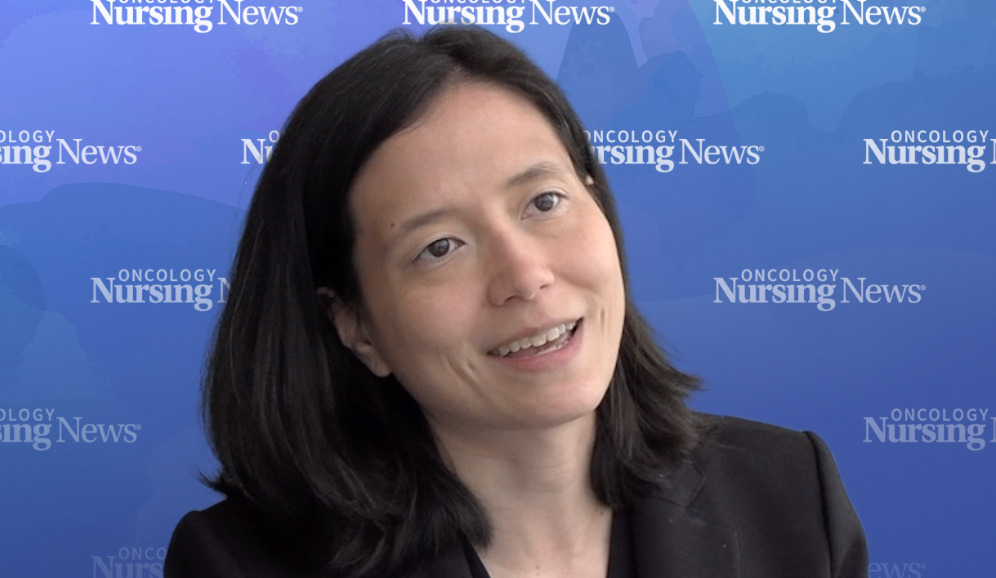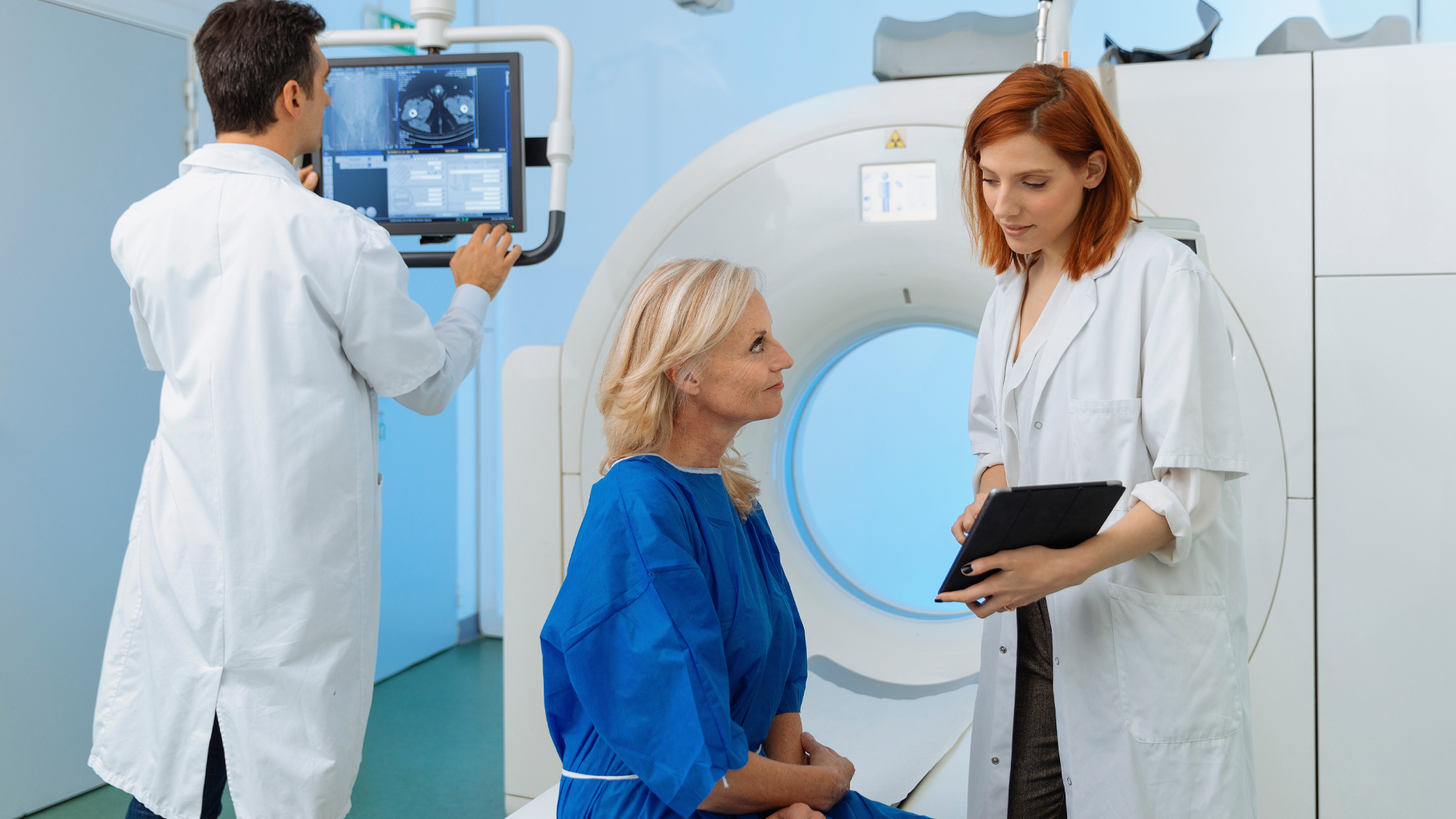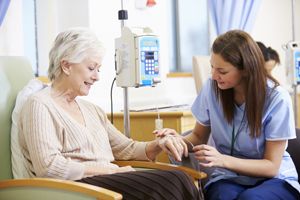Phase I Trials an Increasingly Viable Treatment Option, but Patients Unaware
Even though cancer technology and treatment have improved greatly over the years, patients are still wary of participating in first-in-human studies of potential new agents.
Joyce Schaffer, RN, MSN, AOCNS
Even though cancer technology and treatment have improved greatly over the years, patients are still wary of participating in first-in-human studies of potential new agents.
Because of this, the American Society of Clinical Oncology (ASCO) has released a policy statement for greater access to and education about phase I clinical trials.
ASCO stresses that phase I trials offer greater potential as a treatment option for many patients than was the case in the past, due to the development of molecularly targeted agents, biomarker tests to identify patients likely to respond to treatments, and innovative clinical trial designs.
“With new agents that target specific abnormalities in a patient’s tumor, better tests to identify those abnormalities, and more sophisticated clinical trial designs, today’s phase I trials in cancer offer patients a greater likelihood of benefit than ever before,” ASCO President Peter Paul Yu, MD, FACP, FASCO, said in a statement. “Patients shouldn’t shy away from phase I trials and doctors should present these trials as options for eligible patients throughout the period of active cancer treatment, not only when all other treatment options have failed.”
And while ASCO states that patients who participate in phase I trials may experience an improvement in quality of life, psychological advantages, and direct medical benefits, patients still aren’t receiving the information that phase I trials—and all clinical trials—can benefit them.
“People still think that if they’re enrolled in a clinical trial, there’s a chance they’ll receive a placebo [not current standard of care],” Joyce Schaffer, RN, MSN, AOCNS, said in a recent phone interview with Oncology Nursing News. “People aren’t educated, so they feel like clinical trials are a last resort.”
Even though there are currently 71,387 registered clinical trials in the US, less than 5% of adult cancer patients are enrolled in clinical trials.
“People just don’t know,” Schaffer said. “It’s not their fault; their oncologists aren’t providing information.”
Phase I trials hold even more of a stigma because the drug has never been tested in humans before, but Schaffer said researchers have a better understanding of cancer so phase I trials are designed better.
“It’s not scary anymore,” said Schaffer, an oncology nurse navigator with the Virginia G. Piper Cancer Center Clinical Trials program at Scottsdale Healthcare in Arizona. “When you go for a phase I clinical trial, you’re not sticking your hand in a hat. The trials are looking at mechanism of action, and how it matches up to your specific cancer type. We’ve come a long way with phase I trials.”
“Our little clinic has had three phase I trials that have gone on to FDA approval,” she continued. “The face of phase I is changing.”
However, the changing face of phase I trials means nothing if patients aren’t being told about them.
“The majority of the referrals I get are self-referrals,” Schaffer said.
Schaffer answers questions about clinical trials, all for free.
“People come from all over the world,” she said, “We have patients come for treatment and consultation.”
And while the word is spreading more than it used to, it’s still not enough.
Schaffer and others at the clinical trials program try to get the word out through social media so that family members of patients with cancer can be more educated about clinical trials.
Following the policy statement, ASCO announced that its patient information website, Cancer.net, would be providing a new educational program to help patients and their caregivers learn about clinical trials and address barriers to participation.
The video-based program, called Preparatory Education About Clinical Trials (PRE-ACT), is designed to improve patients' general knowledge and attitudes about clinical trials, and prepare them for considering participation if this option is available.
"This researcher-tested program will help patients learn accurate information about clinical trials and will assist oncologists in identifying clinical trials for their patients, " said Yu.
However, finding a phase I clinical trial can sometimes be difficult, which may be adding to the problem of low enrollment, Schaffer said.
“A lot of community oncology practices do more of the phase III trials,” she said.
Aside from the obstacle of location, patients have to overcome insurance coverage.
The uneven laws and regulations create disparities in patient access to phase I trials and deny many patients the opportunity to try a novel therapy and contribute to knowledge about their disease,” the statement’s lead author, Jeffrey S. Weber, MD, PhD, a member of the ASCO Cancer Research Committee, said in a statement. “CMS should address these disparities and fix these gaps.”
The Patient Protection and Affordable Care Act (ACA) of 2010, requires many private payers to cover routine patient costs in clinical trials; however, the coverage rules for Medicare are unclear and vary across the United States. Furthermore, Medicaid and health insurance plans that are grandfathered under the ACA are not required to provide coverage.
“Insurance companies need to be more knowledgeable,” Schaffer said. “We’re not doing voodoo medicine. It’s based on science.”
But oncologists and oncology nurses can help patients become more knowledgeable about phase I trials and clinical trials in general just by mentioning it to their patients.
“For the crazy, busy oncologist or oncology nurse, taking the time out to talk about clinical trials may not be an option,” Schaffer said. “But if they could just give them a number or a website, that helps. They don’t have to know anything specific.”
“Clinical trials are more precise and can provide great care,” she concluded.
Weber JS, Levit LA, Adamson PC, et al. American Society of Clinical Oncology Policy Update: The Critical Role of Phase I Trials in Cancer Research and Treatment [published online ahead of print December 15, 2014]. J Clin Oncol. http://www.asco.org/sites/www.asco.org/files/phase_1_trials_in_cancer_research-_asco_policy_statement.pdf. Accessed January 9, 2015.




